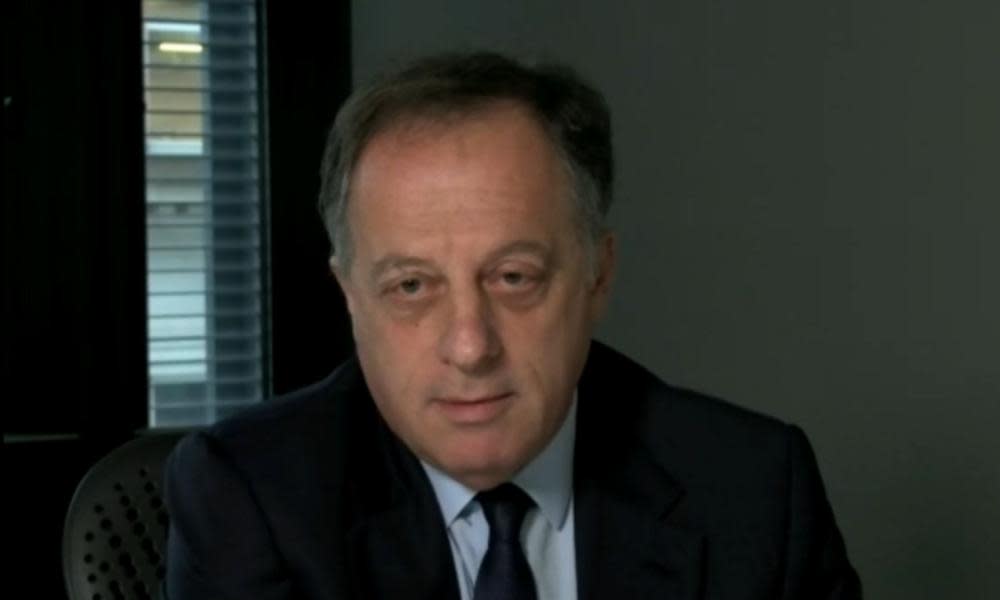Richard Sharp: BBC chair was shareholder in firm awarded £600k while he was a No 10 adviser

Richard Sharp owns a multimillion pound stake in a healthcare company which was granted nearly £600,000 for Covid research while Sharp worked in No 10, it has emerged.
Sharp, the chair of the BBC, is the second-largest shareholder in Oncimmune, a cancer detection company which received funds in 2020 to help research Covid-19 vaccines and treatments. He was previously a director at the company.
Sharp, who has come under fire in recent days over allegations he helped organise an £800,000 loan facility for Boris Johnson, was working as an economic adviser in Downing Street at the time Oncimmune’s grant was approved by UK Research and Innovation, which is part of the business department.
Nicholas Wilson, the anti-corruption campaigner who uncovered the shareholding, said: “It is no surprise that a medical diagnostics company should have received a contract, but for Sharp to be a major shareholder just stinks.”
A spokesperson for Sharp said: “Richard Sharp has been a keen supporter of innovative approaches to tackling cancer and invested in Oncimmune, a leading cancer diagnostics company, when it spun out of Nottingham University.
“He was not involved in any way in the company’s response to the UKRI’s Medicines Catapult Covid awards tender [the scheme through which the company was granted the money], and his work at the Treasury did not have anything to do with UKRI or their medical and scientific research grants.”
A spokesperson for UKRI said: “UKRI has rigorous decision-making processes in place, and the funding decision on this was made on a competitive basis, by expert assessors against an openly published agreed criteria.”
Ron Kirschner, Oncimmune’s general counsel, said: “Richard was not on the board when the application for the grant was made, which was subject to scientific evaluation. We did not discuss our decision to apply with Richard Sharp, nor seek his assistance at any point in the process.”
The BBC chair insisted this week he was given the job on merit, though the circumstances of that appointment are now under investigation by William Shawcross, the commissioner for public appointments.
Sharp previously advised Johnson while he was London mayor, and was prime minister Rishi Sunak’s boss at the investment bank Goldman Sachs.
In May 2020, he left his job as a non-executive director at Oncimmune to take up a role in Downing Street advising Sunak, who was chancellor at the time. While working for the government, he oversaw a programme helping to arrange financing for strategically important companies which needed help through the pandemic but were too big for other pandemic support schemes.
He kept his shareholding in Oncimmune, which currently stands at 6.6% according to the company’s website – though he transferred his shares into a blind trust. The stake would have been worth about £3.8m at the time he left the company, and is now worth about £3.4m.
Just three months after Sharp left the company for government, Oncimmune announced it had won government funding to help adapt its technology to predict how people’s immune systems might respond to Covid-19 vaccines and treatments. UKRI said on Wednesday the company’s share of the contract was worth £598,984, and was not connected to the Treasury or the scheme Sharp oversaw.
Alok Sharma, who was business secretary at the time, said of the contract: “By backing this pioneering project, we are ensuring that the best therapeutic approaches can be offered to the right patients at the right time.”

 Yahoo News
Yahoo News 
